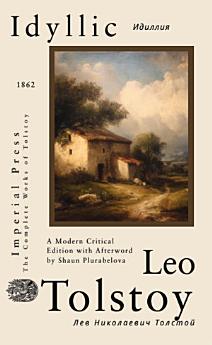Idyllic
About this ebook
"Idyllic," or "Идиллия" in Russian, was conceived in August 1860, with work continuing between 1861 and 1862. This composition remained unfinished, with only three fragments preserved: "Tikhon and Malanya," "It's good earnings, but sin comes from it," and "Don't play with fire - you'll get burned". The author himself outlined the plot, stating that its characters, driven by self-preservation, come to believe that only criminal unreliability can shield them from political unreliability, leading them to form unsavory connections and engage in vulgar acts.
This work, though incomplete, provides a window into Tolstoy's early attempts to grapple with the social and moral complexities of peasant life in Russia. The author's conceptualization of characters resorting to "criminal unreliability" to navigate political instability hints at his burgeoning critique of societal structures and the compromises individuals are forced to make. The very nature of its fragmentation suggests the inherent difficulty in capturing the multifaceted realities of the era, a challenge Tolstoy would continue to explore in his later, more expansive works.
This critical reader's edition presents a modern translation of the original manuscript, crafted for the modern reader with clean, contemporary language and simplified sentence structures that clarify his complex Russian phrasing and specific antiquated references. Supplementary material enriches the text with autobiographical, historical, and linguistic context, including an afterword by the translator on Tolstoy’s personal history, impact, and intellectual legacy, an index of the philosophical concepts he employs—emphasizing Existentialism and influence by Schopenhauer—a comprehensive chronological list of his published writings, and a detailed timeline of his life, highlighting the personal relationships that shaped his philosophy.











